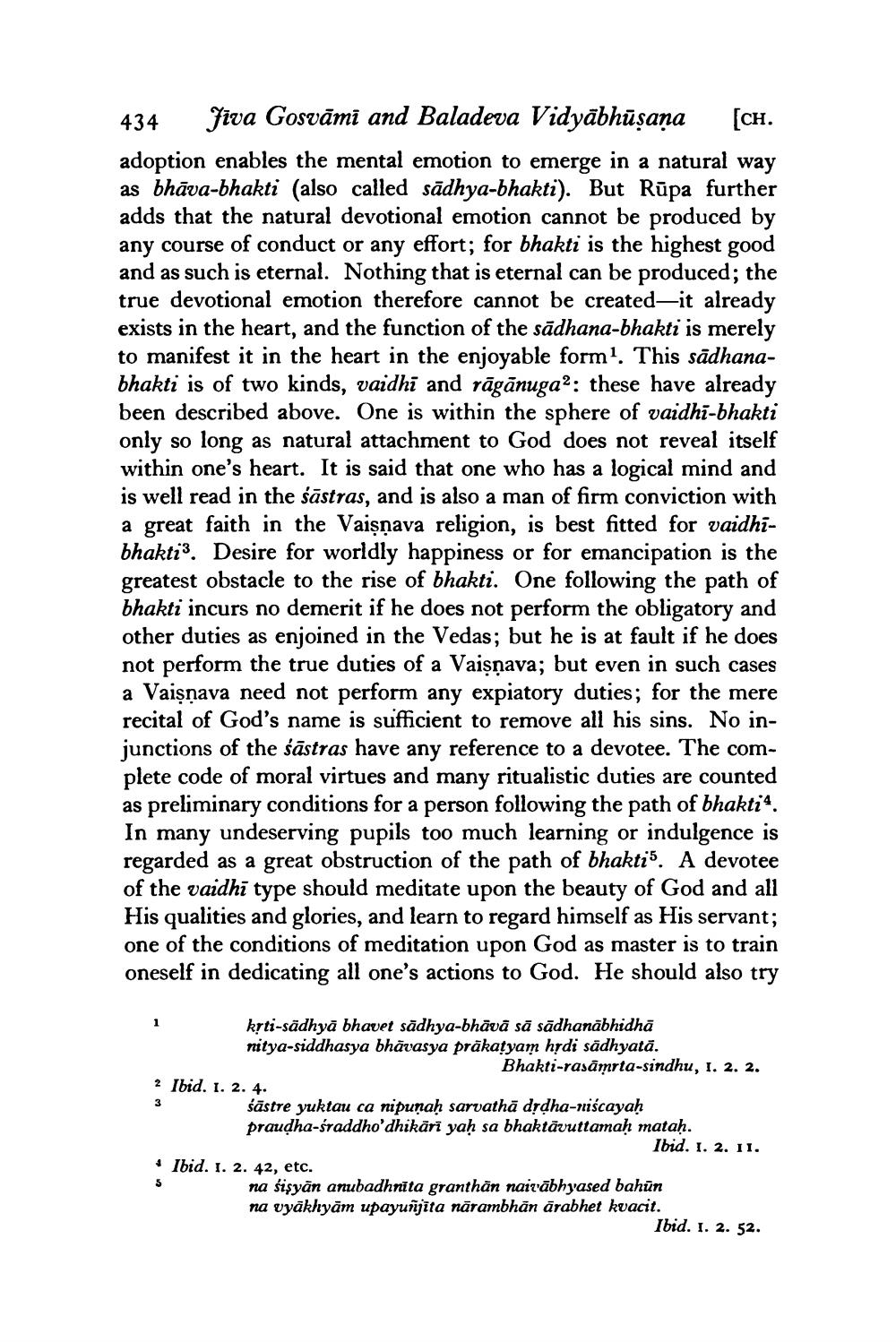________________
434 Jiva Gosvāmi and Baladeva Vidyābhūsana [CH. adoption enables the mental emotion to emerge in a natural way as bhāva-bhakti (also called sādhya-bhakti). But Rūpa further adds that the natural devotional emotion cannot be produced by any course of conduct or any effort; for bhakti is the highest good and as such is eternal. Nothing that is eternal can be produced; the true devotional emotion therefore cannot be created—it already exists in the heart, and the function of the sādhana-bhakti is merely to manifest it in the heart in the enjoyable form? This sādhanabhakti is of two kinds, vaidhī and rāgānuga?: these have already been described above. One is within the sphere of vaidhi-bhakti only so long as natural attachment to God does not reveal itself within one's heart. It is said that one who has a logical mind and is well read in the śāstras, and is also a man of firm conviction with a great faith in the Vaisnava religion, is best fitted for vaidhibhakti3. Desire for worldly happiness or for emancipation is the greatest obstacle to the rise of bhakti. One following the path of bhakti incurs no demerit if he does not perform the obligatory and other duties as enjoined in the Vedas; but he is at fault if he does not perform the true duties of a Vaisnava; but even in such cases a Vaisnava need not perform any expiatory duties; for the mere recital of God's name is sufficient to remove all his sins. No injunctions of the śāstras have any reference to a devotee. The complete code of moral virtues and many ritualistic duties are counted as preliminary conditions for a person following the path of bhakti4. In many undeserving pupils too much learning or indulgence is regarded as a great obstruction of the path of bhaktik. A devotee of the vaidhi type should meditate upon the beauty of God and all His qualities and glories, and learn to regard himself as His servant; one of the conditions of meditation upon God as master is to train oneself in dedicating all one's actions to God. He should also try
krti-sādhyā bhavet sādhya-bhāvā sā sādhanābhidhā nitya-siddhasya bhāvasya prākatyam hrdi sādhyatā.
Bhakti-rasāmrta-sindhu, 1. 2. 2. 2 Ibid. 1. 2. 4.
śāstre yuktau ca nipunaḥ sarvathā drdha-niscayaḥ praudha-śraddho'dhikari yaḥ sa bhaktāvuttamah mataḥ.
Ibid. 1. 2. II. • Ibid. 1. 2. 42, etc.
na śisyān anubadhnīta granthän naivābhyased bahūn na vyākhyām upayunjīta nārambhān ārabhet kvacit.
Ibid. 1. 2. 52.




